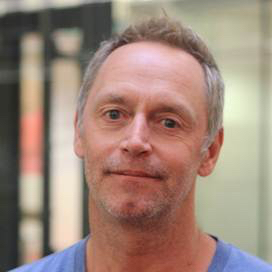Beware of the shallows – how the industry forgot the problems we solve are meant to be hard
In this guest post, strategist Simon Corbett argues that Google has unleashed a plague of shallow thinking upon a communications industry that has become terrified of the word “problem”
I’m a big fan of Google.
I wasn’t always.
Truth be told that I am (in)famous amongst my old mates back in Blighty as the man who predicted that Google wouldn’t succeed. In fact I think my exact quote was: “The whole fun of the internet is trying to find stuff, who wants to just get pointed in the right direction all the time. It won’t last.”



Nice article.
Google is the CEO of source amnesia – the ability to remember the fact but not the source.
All facts become equal.
Making the world dumber. (And smarter too).
‘Source amnesia’…I’ve not heard that before. That’s terrific, thanks for the intro to it. I’m reading up on that ASAP.
Just google it 😉
Well played Kate, well played…
Permission to use “source amnesia” Adam?
Nice article. Marketing too often lives in its own timid reality. But was it a problem that led Heinz to show happy wiener dogs in ‘bun’ coats jumping into the arms of people dressed as Heinz condiments? Or did they just apply the shallow rule William Randolph Hearst noted, “Show me a magazine cover with a pretty girl, a baby and a dog, and I’ll show you a magazine that sells.” If your brand’s biggest problem is getting people to pay attention, deep thinking about your own problems may not be the answer. Deep thinking about what will grab and hold your audience’s interest may be.
Not sure I agree.
If you’ve gone to market with the wrong creative solution or media plan, you’ve got a problem.
If you’re helping a client overcome their prior-model phone with a reputation for exploding with a marketing campaign, I’d call that a challenge.
Antony, potential customers being fearful of their phone bursting into flames is only a challenge?? Really? That the phone they buy might kill them or set alight to their house isn’t a problem? Blimey you’re hard to rattle!!
Hi, Mr Corbett. Thanks for responding. Re: the exploding phone situation.
If we’re talking crisis management, then by the time things have made their way through the C-suite and board of directors, manufacturing, legal and corp affairs to an outside supplier helping them with their comms, then they probably don’t need reminding that they have a problem. Furthermore, to describe this ‘problem’ as ‘meaty’ to their faces might strongly suggest a self-interested perspective. Failure to appear rattled would definitely be a plus when addressing this type of scenario.
If we’re talking a new marketing campaign to overcome prior issues with a new model, then I would still insist that this poses a challenge to the agency. It’s not my problem unless I’m not going to get paid. It’s my client’s problem, and I am part of the solution. I realise this might be nitpicking, but it does go to your point about shallow and deep, with which I generally agree.
Disclosure: I too relish complex briefs.